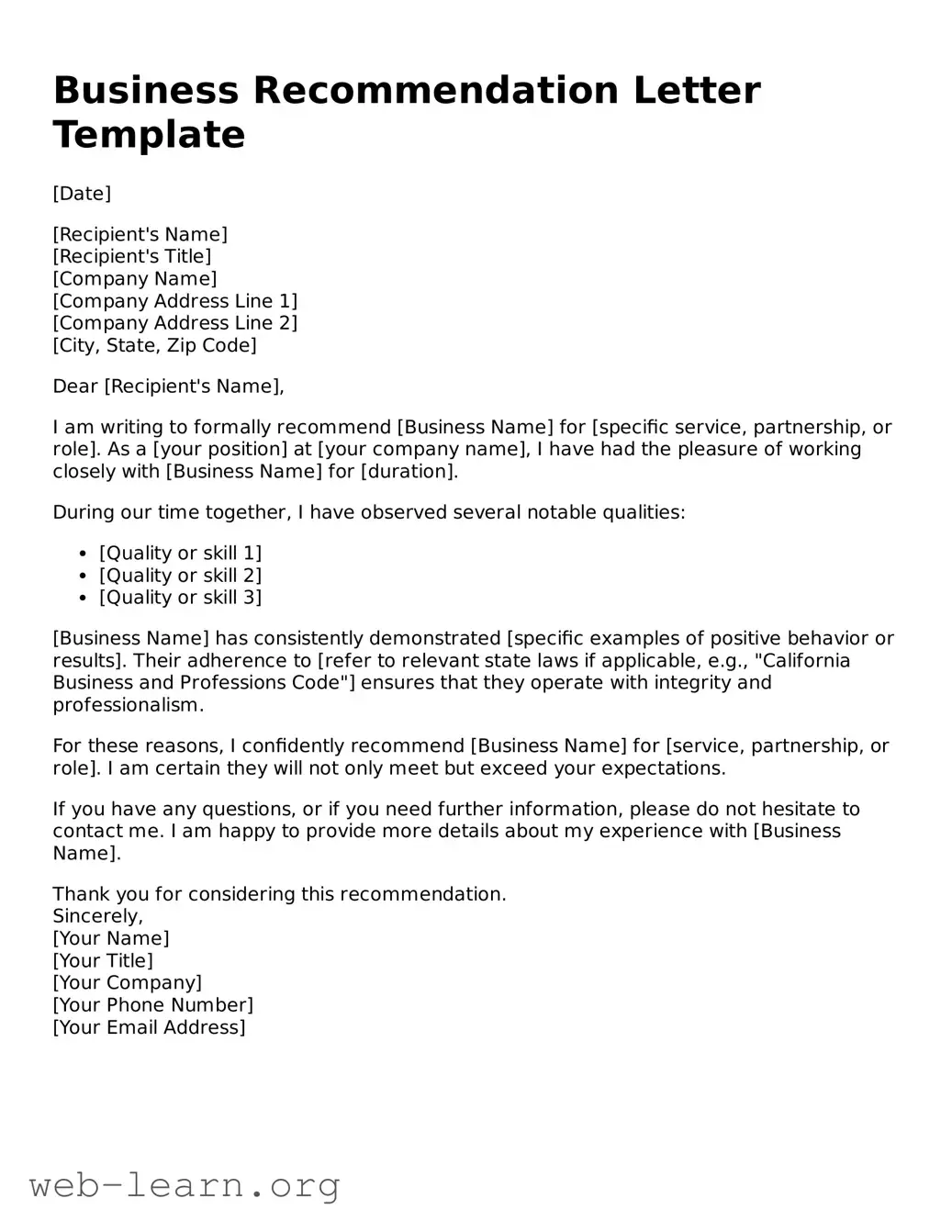Business Recommendation Letter Template
[Date]
[Recipient's Name]
[Recipient's Title]
[Company Name]
[Company Address Line 1]
[Company Address Line 2]
[City, State, Zip Code]
Dear [Recipient's Name],
I am writing to formally recommend [Business Name] for [specific service, partnership, or role]. As a [your position] at [your company name], I have had the pleasure of working closely with [Business Name] for [duration].
During our time together, I have observed several notable qualities:
- [Quality or skill 1]
- [Quality or skill 2]
- [Quality or skill 3]
[Business Name] has consistently demonstrated [specific examples of positive behavior or results]. Their adherence to [refer to relevant state laws if applicable, e.g., "California Business and Professions Code"] ensures that they operate with integrity and professionalism.
For these reasons, I confidently recommend [Business Name] for [service, partnership, or role]. I am certain they will not only meet but exceed your expectations.
If you have any questions, or if you need further information, please do not hesitate to contact me. I am happy to provide more details about my experience with [Business Name].
Thank you for considering this recommendation.
Sincerely,
[Your Name]
[Your Title]
[Your Company]
[Your Phone Number]
[Your Email Address]
